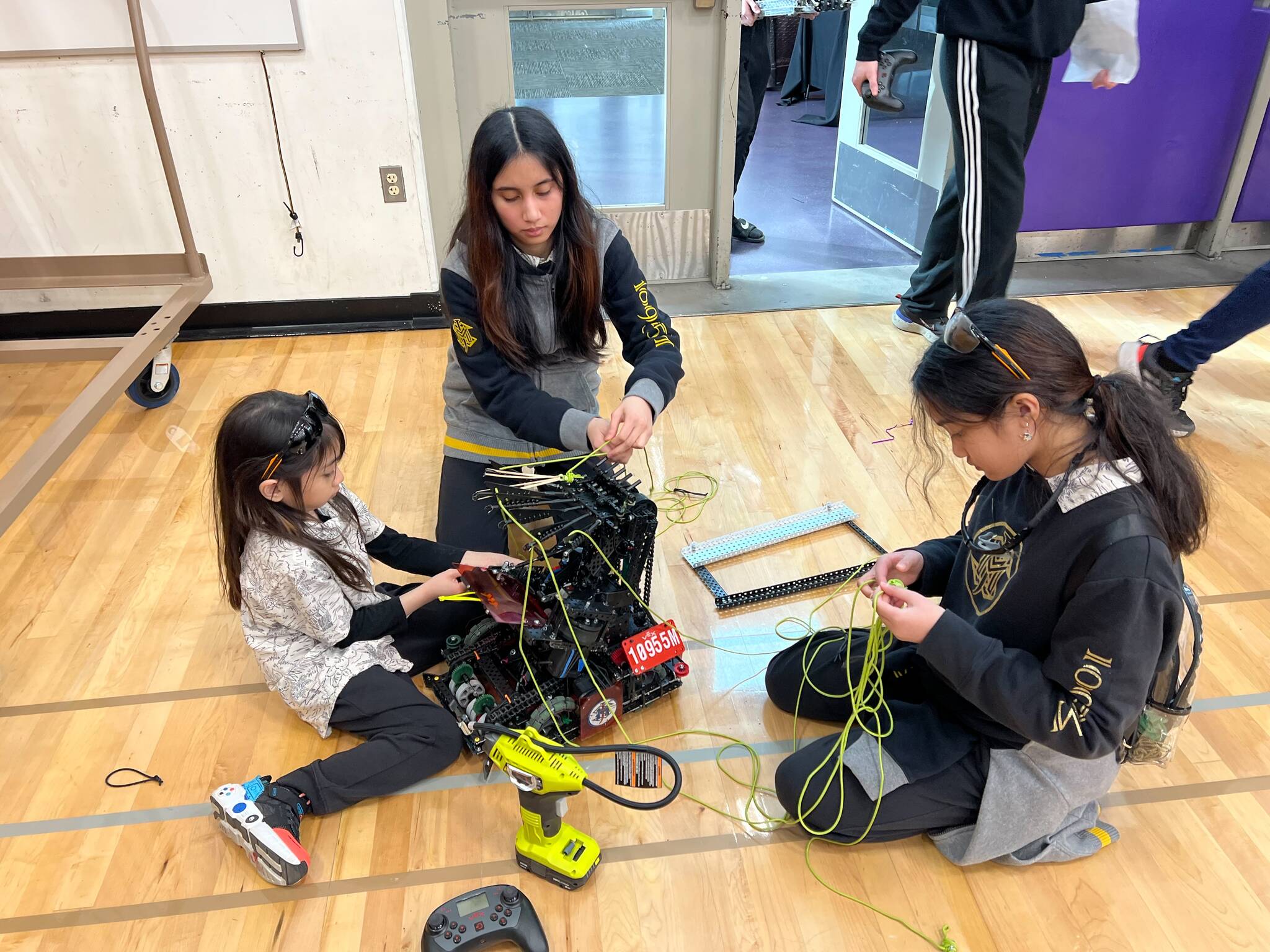Any visitor who walks into the Serrantes home in Oak Harbor can immediately see what the family is most passionate about: robots.
A shelf displays half a dozen robots that have been in competitions all over the country. A padded, 12-by-12-foot competitive robotics court is a permanent fixture in their living room. The robots were built by the four Serrantes siblings, who together make up an independent VEX Robotics team called MJS Robotics.
They have just qualified to compete for the VEX Robotics World Championship, the largest robotics competition in the world. This is nothing new, however, for the erudite family. This will be their seventh time competing on an international level.
This year, MJS Robotics won third place in the state competition. They will attend the world championships held in Dallas, Texas on April 24 – 28. Only 13 teams from Washington, out of 200, qualified to compete.
The family’s love for robotics all started with the two oldest siblings, Mikkel and Mikayla.
Mikayla, 18, explained that the family began building robots when they lived in Hawaii. When she was in fifth grade and Mikkel was in seventh, they both joined their middle school’s robotics club.
“At first, our team wasn’t doing that well, but then my dad gave my brother a robotics kit for his birthday, and that’s where we got started,” Mikayla recalled.
The siblings ended up forming an independent team and winning second place at their first state competition. The following year, the family moved to Oak Harbor for father Joseph’s Navy career. Now, seven years later, 19-year-old Mikkel serves as the team’s coach. Younger sister Misaella, 12, is part of the team and even 7-year-old Mikoilo gets in on the action by counting down how much time remains at competitions.
The siblings chose to start their own team in order to commit more time to robotics. On school teams, Joseph said, students only work on the robots a couple hours a day. Additionally, some school teams have up to 20 students.
“There’s always a conflict of ideas,” Mikayla said.
Joseph likes the hobby because he said it encourages his kids to study during the summer months. To successfully build robots the siblings must use a wide variety of skills, including coding, calculus, engineering and physics. Mikkel was the one to teach his younger sisters how to code.
Joseph also likes that it gets his kids, especially his daughters, involved in STEM; unfortunately, they are usually in the minority in the robotics world.
Competitive robotics can be expensive but Joseph said it’s all worth it due to the fact that it has offered scholarship opportunities for both Mikkel and Mikayla.
“I’ve spent almost $30,000 on the robots for the past 7 years,” Joseph said. “But guess what happened? (Mikkel) got free college.”
Mikkel is currently studying computer science at University of Washington.
The cost of registration for the VEX World Competition alone is $1,200 and there is no cash prize for winners. The siblings seem to enjoy competitive robotics out of a pure love for the activity.
“The reason I like robotics is the struggle,” Mikkel said. “Because every time I lose, there’s another opportunity to keep on improving.”
Mikayla is so committed she has even fallen asleep on the court. Currently, their court is littered with plastic yellow discs. This year, the VEX competition requires robots to throw the discs into a disc golf-type target. For the competition, teams must type code that controls the robots to drive autonomously, as well as use controllers to make the robots move.
Currently, the Serrantes’ robot is “kind of broken,” Mikkel said, but they still have about three weeks before they go head-to-head with 815 teams from all over the world. He and his sisters said they felt confident about their chances and happy they had made it this far.
See the team in action @mjs_robotics on Instagram and at MJS ROBTOICS on YouTube.


